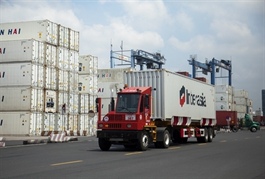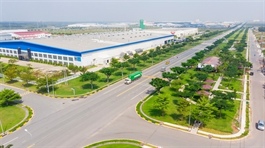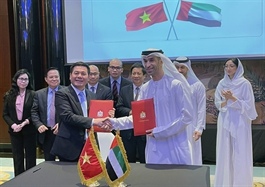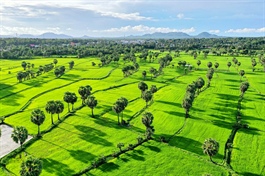Vietnam business environment continues to improve: PCI 2022
Vietnam business environment continues to improve: PCI 2022
The business community still has high hopes for Hanoi to improve the climate for investment and doing business.
Following a general upward trend between 2017 and 2022, the Provincial Competitiveness Index (PCI) score in 2022 was 65.67 points, 0.37 points higher than the result in 2021, indicating continued progress in Vietnam's business environment.
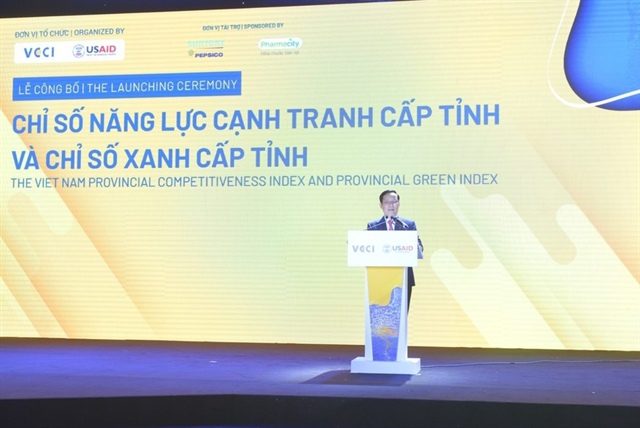
|
Pham Tan Cong, Chairman of the Vietnam Confederation of Commerce and Industry (VCCI), made the announcement today [April 11] at the launch of the PCI report.
The PCI, the result of a long-standing collaboration between the VCCI and the US Agency for International Development (USAID), is designed to assess provincial economic governance, ease of doing business, and administrative reform efforts by provincial governments in Vietnam to promote private sector development.
The 2022 PCI Report is based on responses from 11,872 firms, including 10,590 domestic private firms and 1,282 foreign-invested enterprises (FIEs) operating in the country.
In this year's edition, Quang Ninh, Bac Giang, Haiphong, Ba Ria - Vung Tau and Dong Thap secured the top 5 positions in the PCI 2022 ranking.
"The report shows the tremendous efforts made by both businesses and provincial governments to navigate through the rough waters of the Covid-19 pandemic," said Cong.
Commenting on the report, Dau Anh Tuan, Director of VCCI's Legal Department, noted that both domestic and foreign enterprises reported improvements in administrative procedures, reductions in time spent on bureaucratic compliance, and relief from the burden of informal fees.
However, the impact of the challenging economic environment is also evident in this year's report, as reforms in many policy areas have slowed and business optimism remains low, he said.
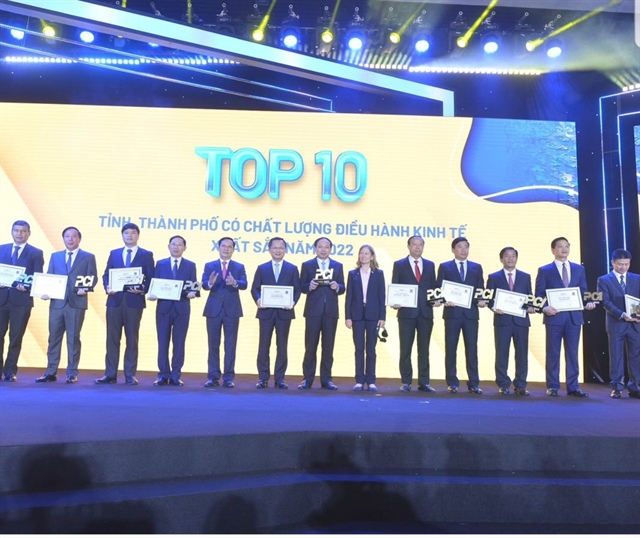
|
Businesses cited numerous challenges with employing staff, getting financing, expanding their infrastructure, and bridging the gap between top-down policy and grassroots execution.
"The tough economic environment in Vietnam has created a number of challenges for businesses. To offset the uncertainties of the global market for businesses, we expect that province and local governments can further strengthen business support measures that contribute to a more enabling and stable domestic business climate.
The Provincial Green Index (PGI), a project developed by VCCI with assistance from USAID and commercial sector partners, was also introduced by VCCI in PCI 2022.
In order to encourage better corporate behavior and practices, including the use of innovative green technologies, this index assesses and ranks provincial environmental policies from the viewpoint of businesses.
In this first edition, the top three PGI performers are Tra Vinh, Lang Son, and Bac Ninh.
Aler Grubbs, USAID/Vietnam Mission Director, noted that the new PGI "signals a greater recognition by the private sector that environmental considerations are equally important to business success and long-term economic growth.
As the first country to adopt the PCI, Grubbs said Vietnam has demonstrated its steadfast commitment to green growth.
Grubbs noted that a shift to a green economy would make it easier for businesses to access green financing and resources, ultimately motivating them to adopt a green strategy.
"The PGI would support Vietnam's efforts to advance sustainable development, achieve ambitious goals of net zero carbon emissions by 2050, and remain in the upper-middle income group by 2030," she said.
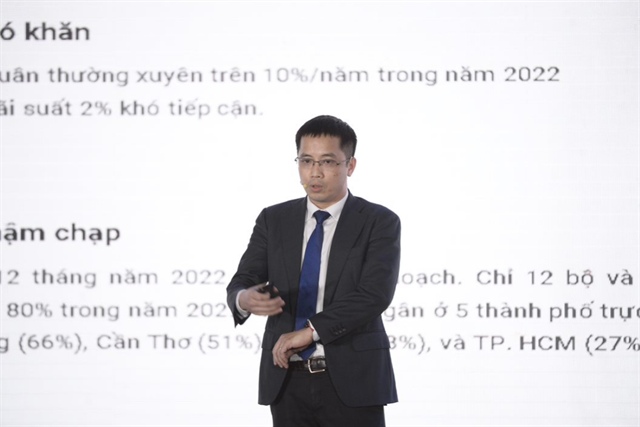
VCCI's Director of the Legal Department Dau Anh Tuan. |
Businesses hold higher expectations for Hanoi
One of the most significant changes in this year's PCI, according to Tuan of the VCCI, was a drop in the rankings of major cities in Vietnam, such as Hanoi (-10), Ho Chi Minh City (-13), Cantho (-7), or Danang. (-5).
"We see this as a major challenge for these big cities. They are more vulnerable to outside demands than others because of their position as the country's economy expands," Tuan told The Hanoi Times.
This is especially true for businesses based in Hanoi, Ho Chi Minh City, Binh Duong or Dong Nai, especially those that are export-oriented and therefore dependent on the expectation for a global economic recovery.
Tuan added that in such a challenging environment, businesses and people naturally rely more on local government support. "The PCI rankings also reflect businesses' expectations of the local government's efforts to reform administrative procedures," Tuan said.
He explained that in this case, PCI "serves as a means to convey their wishes and expectations for the government's strong innovative measures".
To overcome the current difficulties, businesses expect the authorities, and in this case Hanoi, to enforce policies more effectively, especially at the grassroots level, where the quality of implementation has been subdued in recent years.
"Given the ongoing challenges, it is crucial for Hanoi's authorities at all levels to take the initiative and actively engage in the process of policy implementation, as even a small delay can pose a major problem due to the city's large economic size.
Therefore, one of the top priorities for Hanoi should be to continue to remove obstacles for businesses," Tuan concluded.






